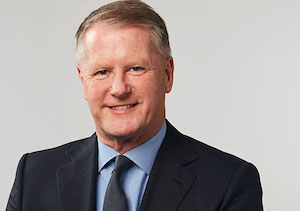Bradford-based supermarket giant Morrisons said late on Wednesday it will follow rival Tesco in paying back to government the business rates relief it received to help survive the coronavirus pandemic.
Morrisons will pay £274 million to the government, £230 million of which relates to its 2020-2021 financial year.
The UK government in March exempted all retailers from paying the tax due on their store networks for the 2020-21 year to help them get through the crisis.
Earlier on Wednesday, Tesco said it would repay the £585 million it has claimed because some of the risks of the crisis were now behind it and returning the money was “the right thing to do.”
Morrisons said in a stock exchange statement on Wednesday night: “For some time Morrisons has been considering the implications of the Government’s decision not to collect business rates this year, and we had planned to make our decision once the full cost and duration of COVID-19 had become more clear.
“However, we have now brought forward this decision and are committing to pay business rates for the coronavirus period in full.
“The total amount to be paid will be £274m, of which £230m relates to 2020/21.
“Due to the impact of the second lockdown and other tier restrictions, we now expect direct COVID-19 costs to be around £270m, c.£40m more than our estimate at our 2020/21 interim results, and significantly higher than the £230m in-year business rates relief.
“In addition to the direct COVID-19 costs, profit has been significantly impacted throughout the year by the extra costs of doing business during the pandemic, for example the widespread temporary closure of many of our cafes and market street counters.
“These costs have been exacerbated recently by the impacts of the second lockdown and tier system.
“However, we have continued to manage our business well and achieved strong operating leverage.
“As a result, before the £230m business rates payment and recognising the busy Christmas and New Year trading period is still ahead of us, we are expecting 2020/21 underlying profit before tax and exceptionals to be in line with our expectations.
“Morrisons has a very strong balance sheet and underlying cash flow, supported by our freehold property portfolio and pension surplus.
“Reflecting this strong position and continuing to adhere to the principles of our capital allocation framework, we propose to pay a special dividend of 4.00p per share to shareholders.
“This relates to the previously deferred payment for H2 2019/20 – the period before COVID-19.
“The special dividend will be payable on 25th January 2021, to those shareholders on the share register as at close of business on 18th December 2020.
“Our business has weathered the significant financial challenges of COVID-19 very well, which is testimony to our financial and operational strength.
“Today’s announcements will clearly impact our net debt position.
“In addition, net debt is currently again being temporarily adversely affected by: the impact on working capital due to the lower national fuel demand during the second lockdown; investment in higher levels of stock availability both during COVID-19 and in our preparations for Brexit; and the extension of the scheme to pay our smaller suppliers immediately during the crisis.
“While many of these factors are temporary and will reverse when trading conditions return to normal, we expect 2020/21 year-end net debt to be around £1.7bn pre-IFRS 16.
“As a result, we are unlikely to generate surplus capital, so have no current plans to pay a special dividend relating to 2020/21.
“For the ordinary dividend, we expect to declare a final 2020/21 dividend based on underlying profit before the payment of business rates.
Morrisons CEO David Potts said: “We are grateful for the Government’s swift action at the start of the pandemic which enabled the whole sector to face squarely into the challenges and disruption caused by COVID-19.
“Throughout this difficult period Morrisons has done its best work to look after our colleagues, our customers and key workers, to feed the nation, to protect both the vulnerable and our smaller suppliers and to play a full and leading role in meeting the enormous challenges that the COVID-19 pandemic brought.
“I’m exceptionally proud of the way that the whole business has responded.”
